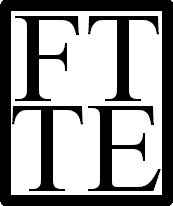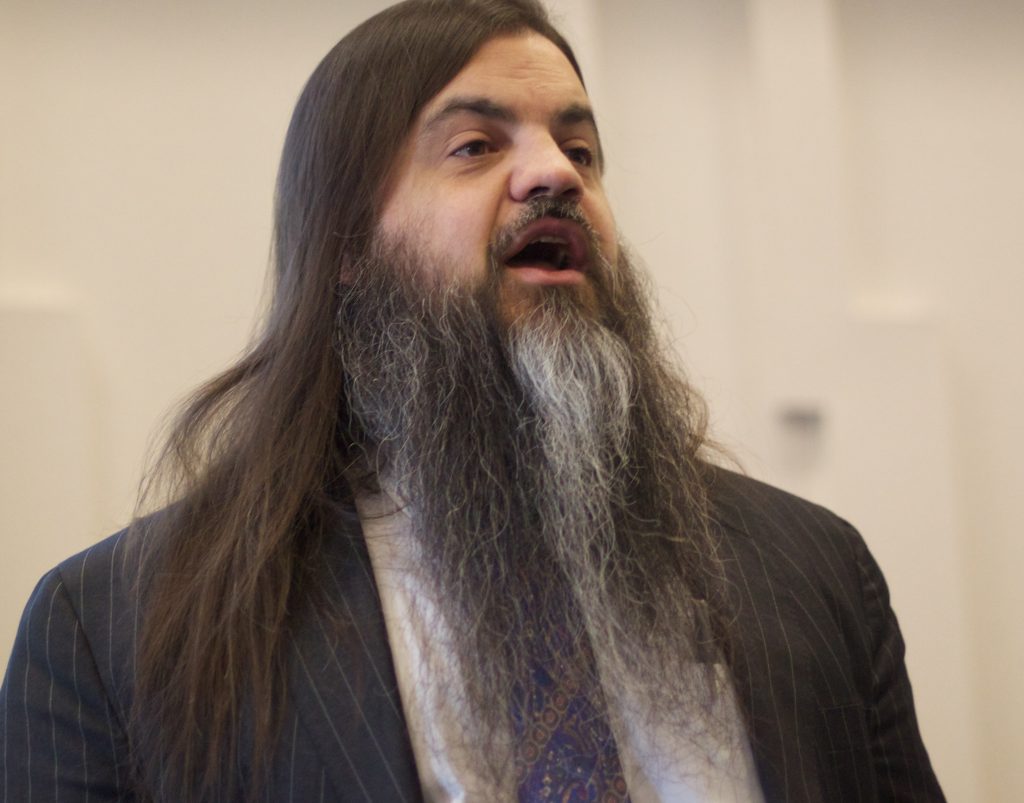On June 12th, 2013, my wife and I launched a wild project. We created Bryan Alexander Consulting from scratch, and hurled it into an unsuspecting world.
I’ve been updating you all about its progress ever since. You can find blog posts from 2014, 2015, 2016, 2016 again, and 2017, each reporting on the business. There are other posts where I either asked for strategic help or shared information on various activities and projects. All of this is because I have practiced openness for this BAC work ever since the start.
 For today’s update/retrospective, I’ll switch things up and conduct the rest of this post in the form of an interview with an imaginary person.
For today’s update/retrospective, I’ll switch things up and conduct the rest of this post in the form of an interview with an imaginary person.
Q: Why on earth did you do such a thing in 2013? You’re a literature prof, for crying out loud!
A: I was working for a nonprofit organization focused on helping small, liberal arts colleges grapple collaboratively with new technologies. After doing that for a decade, my reputation attracted interest from beyond that small (<300 campuses) sector. I could, and wanted to work with community colleges, research-I universities, state schools, and also entities beyond the United States.
Also, the lit prof business was suffering badly. Still is. Living in Vermont, it was most likely I’d have ended up stringing together poorly paying adjunct jobs, or leaving education entirely.
Q: But why a business, though? You and Ceredwyn are not business people. Heck, your dissertation and classes were steeped in Marxist theory!
A: Starting up a nonprofit wasn’t a good choice in 2013. For one, there wasn’t a clear framework I could set up that would make sense. “Join Bryan’s future of education thing” didn’t look likely to fly, especially since it didn’t exist. For another, professional development funding wasn’t too healthy then (nor has it improved since), so I’d be competing for a shrinking pool of funds.

Also, that nonprofit wasn’t doing too well.
I could have fought for grant funding, but without belonging to any organization the odds would have been poor. Starting a business was simpler, frankly, and could get going with better odds and higher speed.
Q: Harrumph. I suppose. So, what’s it been like, being a consultant? How do you actually help people?
A: Over the past five years it’s meant a variety of things. For some clients consulting means doing research for them on spec. They have something they want to know about, and I provide them with answers, usually through a pdf and maybe a presentation. For others it’s meant conducting face to face conversations, ranging from leading workshops on different topics (digital storytelling, gaming, social media, mobile, class redesign) to facilitating conversations across units and silos. Sometimes clients are happy to have conversations online, or via phone; the supermajority have wanted on-site work. Which surprises me still, in 2018. Then again, one client just asked for my fax number.
For a large number it’s actually meant presentations. Since 2013 a growing amount of my time has been spent giving speeches, keynotes, addresses, and talks. Clients ask for information, say, and a speech is the way they want it. Others want an event or process kicked off, or a population stirred up.
This is where at least 80% of BAC income comes from now.
Q: You know, it doesn’t sound like you’re much of a consultant.
A: How do you mean?
Q: You’re not actually consulting. Instead you’re throwing content at people. Most of the time there’s no back and forth, not really. Put another way, you’re not on retainer. You’re saying people want you to present, to perform, to offer a show, and then go away.
A: Well, that’s not exactly true. My presentations are very interactive. And I am in regular contact with all of my 100 or so clients.
Q: But these are one-and-done events. One-offs. And they’re big. It’s you and 200 or more faculty and staff. I think of consulting as taking place in small groups, one on one conversations. And persistent, too, occurring over time.
A: That is the traditional model. And you’re right about the balance of BAC work now being presentations.
Q: So what are you actually doing, man?
A: It seems like what educators and associated populations (governments, associations) really want now is presentations. When it comes to the future of education, people are interested in getting big shots of content, heavy doses of research.
Q: Why? Can’t they get this from, say, reading articles and books?
A: I’m not so sure.
Some of my colleagues and the people I respect report that most academic audiences are new to what they share. Demographics, technology, economics – it seems that people working in and around education aren’t finding this stuff on their own. I’m honestly not sure why.
Also, educators still value the in-person experience. We’ve been gradually moving online, more in our personal than professional lives, but we haven’t really made the switch, if I can generalize. We love going to conferences, still, for example. We pay much more attention to face-to-face teaching than online education.
Q: So why do you make so much stuff online? That seems counterproductive.
A: It’s also hard to do, since our Vermont location has bad digital infrastructure.
Q: Tell me about it. I’m only a figment of your imagination, and even I can barely get into your blog on what’s barely above dialup speeds.
 A: Well, I make digital materials for a few reasons. To begin with, all of this online work reaches out to people. This blog gets around 1,000 hits per day. There are 2100 Future Trends Forum subscribers about 1994 FTTE subscribers. A marketer would say that’s decent marketing, but for me the benefits are different. I get to learn from people. Every time I tweet, blog, hold a Forum session, I’m opening my ideas to scrutiny and feedback. I also receive new ideas – every week FTTE readers hurl stories my way. I get smarter as a result, and my work improves. The digital back and forth feeds directly into my face-t0-face work.
A: Well, I make digital materials for a few reasons. To begin with, all of this online work reaches out to people. This blog gets around 1,000 hits per day. There are 2100 Future Trends Forum subscribers about 1994 FTTE subscribers. A marketer would say that’s decent marketing, but for me the benefits are different. I get to learn from people. Every time I tweet, blog, hold a Forum session, I’m opening my ideas to scrutiny and feedback. I also receive new ideas – every week FTTE readers hurl stories my way. I get smarter as a result, and my work improves. The digital back and forth feeds directly into my face-t0-face work.
For another, I’m thinking of the future, unsurprisingly. I’m betting that the digital curves are trending upwards, that more and more people in and around education will gradually become more comfortable working online. I also hope our online experience will get better, as with webinars. So I’m trying to skate ahead of Gretzky‘s puck. I’m also experimenting, trying to develop bits of the future by trying things out.
Q: So you’re an amphibian, moving along the tidal edge between the digital and face-to-face domains.
A: I think so. Yeah.
Q: And you’re a consultant who doesn’t really consult that much. Are you a media producer slash media creator slash performer?
A: Since you don’t have a word for it, my imaginary friend, perhaps you and I together are trying to suss out something that doesn’t yet exist. Maybe this role is emerging, and because it’s so new we don’t have a word for it. That’s often a sign of something approaching from the future.
Q: You’re definitely not a consultant.
A: Maybe this is what the future of consulting looks like. Or part of it, anyway. It’s happening in the open, not behind closed doors or within black boxes.
Q: Then you’re wasting your time.
A: How so?
Q: Instead of working for paying clients, you’re flinging time and professional goods in all directions, aimed at people who aren’t paying you. This sounds… well, doomed. Unless you’re just inherited some money I don’t know about.
A: No, Ceredwyn and I are still entirely on our own. No rich relatives sharing goodies. No institutions backing us. We are independent and without a net. (People don’t get that, and I have no idea why not.)
Q: So you’re even more doomed than I thought.
A: Not so much. If the marketers are right, my non-paying digital work builds reputation and brand, right? So that leads to speaking gigs, and even consulting.
Q: So BAC is basically a digital speaker’s bureau? With one speaker?
A: That describes the majority of what BAC does. But maybe “21st century futurist” is a better title.
Q: Do other futurists do this?
A: Some, yes, They blog, or use Twitter, or Facebook. They make videos.
But the truly social nature of what I do seems unusual. The Future Trends Forum, for example, isn’t about me speaking. I’m just the host. It’s all about the guests and the Forum community. The crowdsourcing aspect is critical to the FTTE report. I brainstorm and consult with my splendid Patreon supporters every week. Those thousands of people involved in these different enterprises – they matter hugely to me. Dialogically. Emotionally. Together we’re making something new.
Q: That sounds both cheesy and unlikely.
A: You are too cynical, my imaginary friend. Because it works. That’s what BAC has become by 2018, a node among networks, an ongoing provocation for hire, a crowdsourced think tank, a 21st century experiment in futuring.
…and now over to my non-imaginary friends and networks. Any questions from you about BAC in Year Five?







Bryan,
I just finished the book “BIG MAGIC” by Elizabeth Gilbert of “Eat, Pray, Love” fame—although the book of hers I think you would like most is “The Last American Man,” and it seems to me you have a lot of big magic at work for you. There are hidden powers very much at work on your behalf because you love your work, throw yourself at it, and in return, it is loving you back, as Gilbert would put it.
I am a friend and follower of yours because of your book on digital storytelling and your interest in science fiction. You have so many other interests that just go right over my head, but I follow along very much because of the extra magical energy I feel at work in your world—I hope that my loving regard adds to that energy.
As a retiree, I’m not in a position to donate to Patreon accounts—my mom gets my cash—but I also personally don’t undervalue the positive effect of the pattern of friendships that form like iron filings lining up around the magnet of soul—you, in this example.
Thank you for your inspiring committment to transparency.
My dear Sandy.
What a sweet, loving, and inspiring response. Thank you. Your friendship means a great deal.
I agree with Gilbert on this. I do throw myself into the work and that world, and bet that it’ll respond positively.
What would you like us to do next with science fiction?
When Reader Response theory meets the Devil’s Advocate, ecce the Imaginary Interlocutor.
Seeing parallels with both of you in my own practice, I wager there are far more kindred souls than imagined. We’re finding each other. FOECast is part of this too ~ as are other projects, movements, informal networks…
and another reflection — both Cory Doctorow and Paulo Coelho are doing well with throwing free stuff around business model